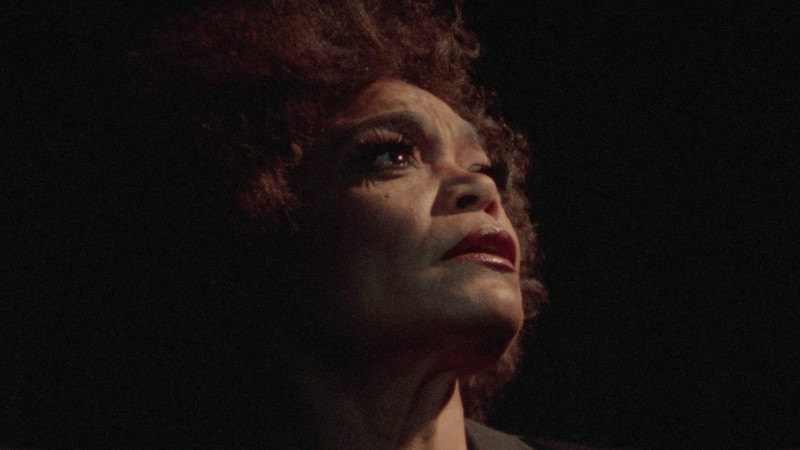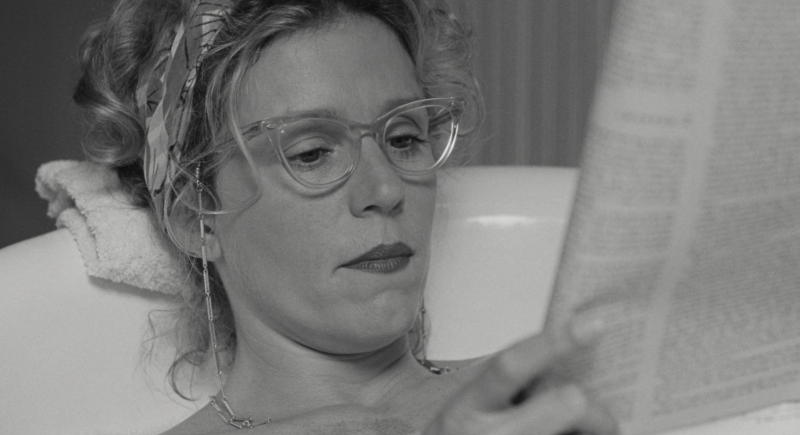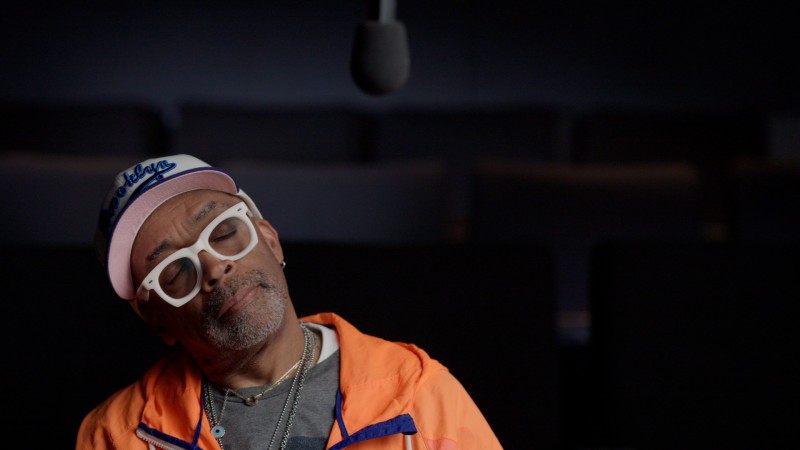Godard at Cannes, Part One

Since he joined the Cannes circus in l979, when he announced his return to cinema by unveiling Slow Motion (Sauve qui peut), Jean-Luc Godard, in the form of his films and often in person, has been many times to the event. This year saw Godard in competition for the seventh time, and in addition to the media fireworks, there was an astonishing film.
It is perhaps not sufficiently emphasized that Godard spent two years in his twenties as a publicist for Fox in Paris. The job was given to him by Claude Chabrol, who had himself proved a master spinner but was moving on to direct films—Chabrol was the first of the Cahiers gang to make the leap into features. I often think that those two years are not given enough significance in considerations of Godard’s extraordinary and long career in the cinema.
The first day I ever spent in Cannes, thirty years ago, Godard dominated the front pages. Admittedly, on that one occasion, he was not the author of the stunt that propelled him there. That honor fell to the Belgian anarchist Noel Godin, who has devoted a lifetime to delivering custard pies into the faces of the great and the good at the highest-profile media events. Most recipients of the attentions of the Belgian pie thrower take it badly—none more so than the prima donna of French intellectual life, Bernard-Henri Lévy, who was similarly pied at Cannes in the early nineties. Godard, it must be said, reacted with his characteristic lightening wit—“This is what happens when silent movies meet talking pictures.” Having once again interpreted his life in terms of the history of the cinema—it was Mack Sennett who invented the custard pie gag—Godard then proceeded to lick some of the cream off his huge cigar. He also persuaded the festival authorities not to try to prosecute Godin.
And as if one visit to the front pages during one year at the festivalwas not enough, Godard then managed to upstage himself by concluding a movie deal on a paper napkin with the Israeli film mogul Menachem Golan in which, in return for $1,000,000, Godard would make a film of King Lear. This, to Golan’s evident satisfaction, captured the festival’s attention for a full twenty-four hours. As the festival has perhaps the worst collective case of ADHD in human history, twenty-four hours is probably a world record. Unfortunately, Golan should have realized that no one outwits Jean-Luc over contracts, and if he had gained for his short-lived Cannon empire a moment of cultural credibility he was not getting himself a Shakespeare play. Godard was always careful to point out that the napkin contract never mentioned Shakespeare. Lear was in the air that year, 1985—Kurosawa had made Ran and Welles was contemplating a Lear project just before he died—but Godard rather typically had never read the play. Indeed, two weeks after the festival concluded he rang me up and asked if I would come and help him—he confessed that he was finding Shakespeare’s language a bit difficult. Excitedly, I got down my Arden edition and prepared to instruct the great filmmaker on the joys of Early Modern English.
No phone call followed, but two years later the film was at Cannes and I was a trifle surprised when at the press conference Godard said that I was among a number of people who had abandoned him on the project. As I had spent a whole summer waiting by the telephone, I might have been mildly aggrieved at this astonishing untruth, but I knew Godard well enough by then to understand that he would never let truth get in the way of a story, and the story of King Lear was, as the opening credits state, that “it was a movie shot in the back.” I watched it from the row behind Golan as he saw his napkin deal on Lear metamorphose into a film that opened with a recriminatory telephone conversation between himself and Godard in which Golan complained about the progress of the film. I couldn’t actually take Golan’s blood pressure in the theater, but one guessed he was not best pleased. Indeed, Tom Luddy, the film’s producer, who was sitting next to Golan, was terrified at the mogul’s reaction and has felt ever since that his life was saved by the director of the Jerusalem Film Festival’s running up to Golan before the lights were fully up to beg for the film for her festival. The screening was memorable for me because Godard later went out of his way to thank me for having brought my own eleven-year-old daughter to his film about the struggles between daughters and fathers.
If Godard never quite outdid the year of the pie and the napkin, every appearance was guaranteed to produce a press conference almost as interesting as the film. Though perhaps the biggest media event of all, when he appeared with Nouvelle vague in 1990, ended up not really being about him. I knew that his lead, Alain Delon, was France’s favorite movie star, but I hadn’t realized that every middle-aged housewife in Cannes would turn out for a glimpse of their idol; for once Godard was eclipsed.
In recent years, he has taken the manipulation of the Cannes media to a new level, managing, both in 2012 with Film socialisme and this year with Adieu au langage, to dominate the headlines without even turning up.In 2012 his absence was last-minute, following an enigmatic message that, as he was suffering from problems of “the Greek type” (Europe was then in the middle of the Greek financial crisis), he could not attend the festival, and that although he would support it “until death,” he “wouldn’t go one step further.”
This puzzling and lapidary statement received more interpretation and comment than all the other press conferences combined. This year, he proved that his publicist’s gifts were as fertile as ever when he tried a very different tack. First he gave a prominent interview in which he said that nothing would induce him to go to Cannes, and adding for good measure that he didn’t want to win any prizes. Then he sent a letter to festival president Gilles Jacob and director Thierry Fremaux, but this time the message was an eight-minute film, including the only scene from Shakespeare in the film he had made thirty years ago. When, at the opening of King Lear, Lear asks his three daughters to say how much they love him, it is the youngest, Cordelia, who responds that she cannot “heave her heart into her mouth” and refuses to spray her father with false sentiment. Godard has once again asserted his independence from the media circus that is Cannes while showing that he is also past master at manipulating it.



